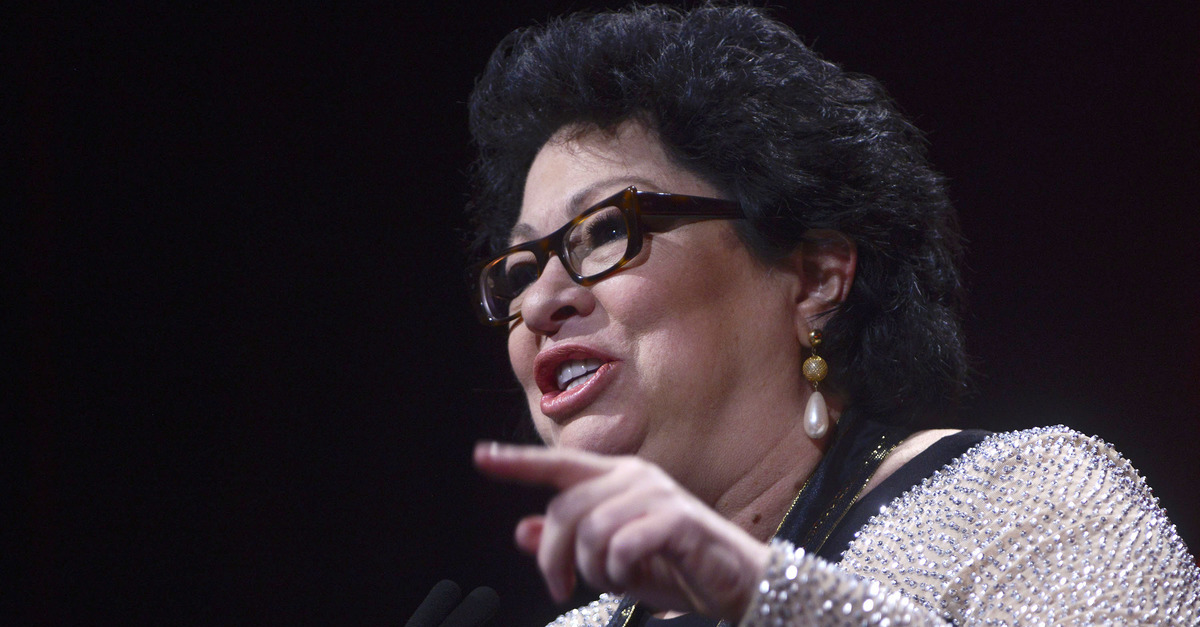
The U.S. Supreme Court on Wednesday sided with Alabama state officials seeking to prevent curbside voting, overturning two lower court decisions accommodating individuals with disabilities and underlying conditions that them particularly vulnerable to the COVID-19 pandemic. The justices voted 5-3 to lift an injunction of the curbside voting ban, with Chief Justice John Roberts joining court’s conservative bloc and the liberal justices dissenting. While the majority did not include the legal reasoning underlying the decision, Justice Sonia Sotomayor penned a brief yet biting dissent to the “shadow docket” ruling.
After Alabama prohibited counties from allowing curbside voting, a coalition of at-risk voters filed a lawsuit challenging the ban as a violation of the Americans with Disabilities Act (ADA). A federal district court agreed, halting the ban and implementing a policy that permitted, but did not require, counties to collect curbside ballots. A federal appeals court upheld the ruling, and the state filed an emergency petition with the Supreme Court.
In her dissent, which was joined by Justices Stephen Breyer and Elena Kagan, Sotomayor pointed out that the U.S. Department of Justice had previously come out in favor of curbside voting as a reasonable accommodation to remedy violations of the ADA, asserting that Alabama has no valid reason for prohibiting the process to those most vulnerable to the pandemic from being forced to vote indoors in a state with no mask requirement.
“If those vulnerable voters wish to vote in person, they must wait inside, for as long as it takes, in a crowd of fellow voters whom Alabama does not require to wear face coverings,” she wrote. “The District Court for good reason found that the secretary’s ban deprives disabled voters of the equally effective ‘opportunity to participate in’ the ‘benefit’ of in-person voting. The secretary does not meaningfully dispute that the plaintiffs have disabilities, that COVID–19 is disproportionately likely to be fatal to these plaintiffs, and that traditional in-person voting will meaningfully increase their risk of exposure. He argues only that the relevant ‘benefit’ under the ADA is voting generally, not in-person voting specifically, and that absentee voting ensures access to that benefit.”
After explaining how the lower courts’ decisions was a compromise that lifted “burdensome requirements” rather than imposing them, she concluded by quoting from one of the plaintiffs in the case, Howard Porter Jr., a Black septuagenarian with both asthma and Parkinson’s Disease.
“[S]o many of my [ancestors] even died to vote,” he testified during the district court trial. “And while I don’t mind dying to vote, I think we’re past that – we’re past that time.”
Sotomayor said election officials agreed with Porter and were trying to help, but the court stopped that from happening.
“They are ready and willing to help vulnerable voters like Mr. Porter cast their ballots without unnecessarily risking infection from a deadly virus. This Court should not stand in their way,” the justice wrote.
Read the full dissent below:
SCOTUS AL Curbside Voting Decision by Law&Crime on Scribd
[image via Leigh Vogel/Getty Images]